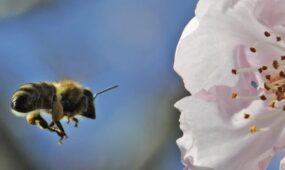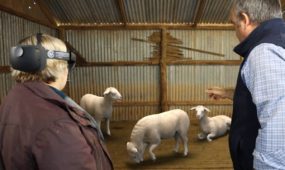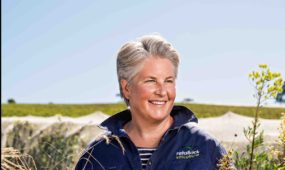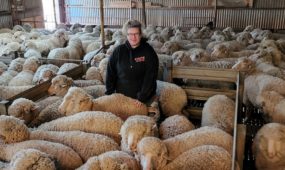Warming oceans threaten marine food webs
Primary Industries
Rising sea temperatures will affect marine food sources and potentially harm commercial fish stocks, a new study has found.

Sign up to receive notifications about new stories in this category.
Thank you for subscribing to story notifications.

University of Adelaide scientists have demonstrated how climate change can drive the collapse of marine “food webs”.
Such disturbances in energy transfer can potentially lead to a decrease in food availability for top predators, which in turn, can lead to negative impacts for many marine species within these food webs.
In the South Australian study, 12 1,600-litre tanks were constructed to mimic predicted conditions of elevated ocean temperature and acidity caused by increasing human greenhouse gas emissions. The tanks harboured a range of species including algae, shrimp, sponges, snails, and fishes.
The mini-food web was maintained under future climate conditions for six months, during which time the researchers measured the survival, growth, biomass, and productivity of all animals and plants, and used these measurements in a sophisticated food web model.
The study’s lead author PhD student, Hadayet Ullah and supervisors Professor Ivan Nagelkerken and Associate Professor Damien Fordham of the University of Adelaide’s Environment Institute, showed that increased temperatures reduced the vital flow of energy from the primary food producers at the bottom (such as algae), to intermediate consumers (herbivores), to predators at the top of marine food webs.
“Whilst climate change increased the productivity of plants, this was mainly due to an expansion of cyanobacteria (small blue-green algae),” said Mr Ullah.
“This increased primary productivity does not support food webs, however, because these cyanobacteria are largely unpalatable and they are not consumed by herbivores.”
“Healthy food webs are important for maintenance of species diversity and provide a source of income and food for millions of people worldwide. Therefore, it is important to understand how climate change is altering marine food webs in the near future.”
Professor Nagelkerken said understanding how ecosystems functioned under the effects of global warming was a challenge in ecological research. He said most research on ocean warming involved simplified, short-term experiments based on only one or a few species.
“If we are to adequately forecast the impacts of climate change on ocean food webs and fisheries productivity, we need more complex and realistic approaches, that provide more reliable data for sophisticated food web models,” Professor Nagelkerken said.
The study is published today (10 January) on the PLOS Biology website.
South Australia’s capital Adelaide has three long-standing public universities, Flinders University, University of South Australia and the University of Adelaide, each of which are consistently rated highly in the international higher education rankings.
Jump to next article



